Related Research Articles

Dominique Marie François René Galouzeau de Villepin is a French politician who served as Prime Minister of France from 31 May 2005 to 17 May 2007 under President Jacques Chirac.

Aimé Fernand David Césaire was a Francophone Martinican poet, author, and politician. He was "one of the founders of the Négritude movement in Francophone literature" and coined the word négritude in French. He founded the Parti progressiste martiniquais in 1958, and served in the French National Assembly from 1945 to 1993 and as President of the Regional Council of Martinique from 1983 to 1988.

The Union for a Popular Movement was a liberal-conservative political party in France, largely inspired by the Gaullist tradition. During its existence, the UMP was one of the two major parties in French politics along with the Socialist Party (PS). The UMP was formed in 2002 as a merger of several centre-right parties under the leadership of President Jacques Chirac. In May 2015, the party was succeeded by The Republicans.

Nicolas Paul Stéphane Sarközy de Nagy-Bocsa is a French politician who served as the president of France and co-prince of Andorra from 2007 to 2012.

Bernard Kouchner is a French politician and doctor. He is the co-founder of Médecins Sans Frontières (MSF) and Médecins du Monde. From 2007 until 2010, he was the French Minister of Foreign and European Affairs in the center-right Fillon government under president Nicolas Sarkozy, although he had been in the past a minister in socialist governments. In 2010, The Jerusalem Post considered Kouchner the 15th most influential Jew in the world. Since 2015 Kouchner is workstream leader for the AMU, where he contributes his expertise in healthcare.

The HIV trial in Libya concerns the trials, appeals and eventual release of six foreign medical workers charged with conspiring to deliberately infect over 400 children with HIV in 1998, causing an epidemic at El-Fatih Children's Hospital in Benghazi, Libya. About 56 of the infected children had died by August 2007. The total number of victims rose to 131 in 2022.
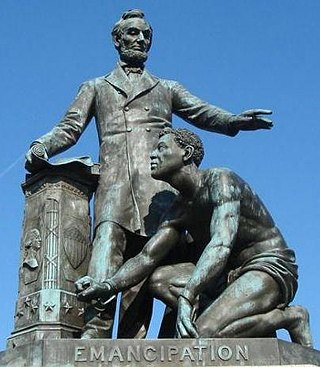
Abraham Lincoln's position on slavery in the United States is one of the most discussed aspects of his life. Lincoln frequently expressed his moral opposition to slavery in public and private. "I am naturally anti-slavery. If slavery is not wrong, nothing is wrong," he stated. "I can not remember when I did not so think, and feel." However, the question of what to do about it and how to end it, given that it was so firmly embedded in the nation's constitutional framework and in the economy of much of the country, was complex and politically challenging. In addition, there was the unanswered question, which Lincoln had to deal with, of what would become of the four million slaves if liberated: how they would earn a living in a society that had almost always rejected them or looked down on their very presence.
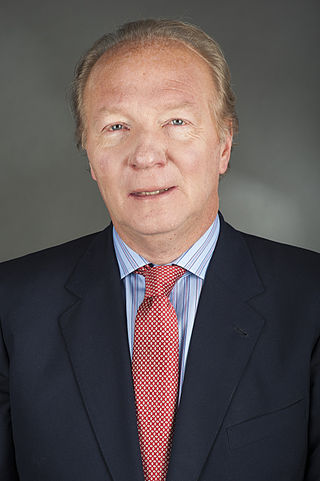
Brice Hortefeux is a conservative French politician. He was Minister of the Interior, Overseas Territories and Territorial collectivities. He was previously Minister for Labour, Labour Relations, the Family, Solidarity and Urban Affairs and Minister-Delegate for Local Government at the Ministry of the Interior and was a Member of the European Parliament.
Incitement to ethnic or racial hatred is a crime under the laws of several countries.

1960 is referred to as the Year of Africa because of a series of events that took place during the year—mainly the independence of seventeen African nations—that highlighted the growing Pan-African sentiments in the continent. The year brought about the culmination of African independence movements and the subsequent emergence of Africa as a major force in the United Nations. These rapid political developments led to speculation and hope about the future of Africa as a whole; yet at the same time, the continent was beginning to face the realities of post-colonial violence. This year also saw the beginning of armed opposition to South African apartheid government, with political ramifications across Africa and around the world. During the year, all colonies of French West Africa and French Equatorial Africa became independent.

Doudou Diène is a Senegalese jurist. He was United Nations Special Rapporteur on contemporary forms of racism, racial discrimination, xenophobia and related intolerance from 2002–2008.
The 23 February 2005 French law on colonialism was an act passed by the National Assembly, which imposed on high-school (lycée) teachers a requirement to teach the "positive values" of colonialism to their students. The law, particularly the aforementioned paragraph and Articles 1 and 13, created a public uproar and drew massive opposition from the left, and Article 4, Paragraph 2 was repealed by president Jacques Chirac (UMP) at the beginning of 2006, after accusations of historical revisionism from various teachers and historians, including Pierre Vidal-Naquet, Claude Liauzu, Olivier Le Cour Grandmaison and Benjamin Stora. Its Article 13 was also criticized as it supported former Organisation armée secrète (OAS) militants.

The historical phenomenon of colonization is one that stretches around the globe and across time. Ancient and medieval colonialism was practiced by the Phoenicians, Greeks, Turks, and Arabs.
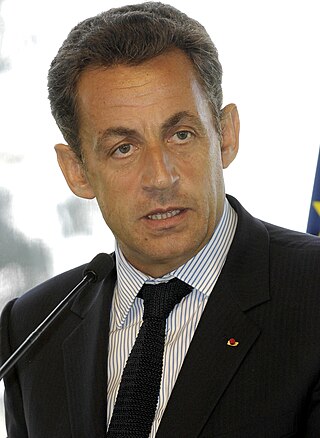
Presidential elections were held in France on 21 and 22 April 2007 to elect the successor to Jacques Chirac as president of France for a five-year term. As no candidate received a majority of the vote, a second round was held on 5 and 6 May 2007 between the two leading candidates, Nicolas Sarkozy and Ségolène Royal. Sarkozy was elected with 53% of the vote.

The presidency of Nicolas Sarkozy began on 16 May 2007 when Nicolas Sarkozy became the sixth President of the French Fifth Republic, following his victory in the 2007 presidential election. A candidate of the conservative Union for a Popular Movement (UMP), he nominated François Fillon as Prime minister, who formed a composite government, a bit modified following the UMP's relative victory during the June legislative election. Although the UMP had not obtained a majority as large as expected, Nicolas Sarkozy could launch the reforms he had pledged as a candidate as soon as he was elected. However, he tried to open his government to the opposition party, appointing several politicians close to the opposition parties.
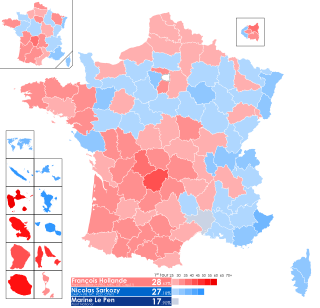
Presidential elections were held in France on 22 April 2012, with a second round run-off held on 6 May to elect the President of France. The incumbent Nicolas Sarkozy was running for a second five-year term for which he was eligible for under the Constitution of France.

France–Americas relations started in the 16th century, soon after the discovery of the New World by Christopher Columbus, and have developed over a period of several centuries.

Presidential elections were held in Senegal on 26 February 2012, amidst controversy over the constitutional validity of a third term for incumbent president Abdoulaye Wade. In the runoff on 25 March, Macky Sall defeated the incumbent president. The 2015 documentary film Incorruptible chronicles both campaigns as well as the youth movement Y'en a Marre, which led protests against Wade's administration.

The "Wind of Change" speech was an address made by British Prime Minister Harold Macmillan to the Parliament of South Africa on 3 February 1960 in Cape Town. He had spent a month in Africa in visiting a number of British colonies. When the Labour Party was in government from 1945 to 1951, it had started a process of decolonisation, but the policy had been halted or at least slowed down by the Conservative governments since 1951. Macmillan's speech signalled that the Conservative Party, which formed the British government, would no longer impede independence for many of those territories.
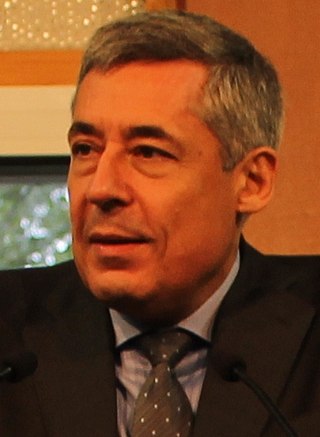
Henri Guaino is a French speechwriter and politician who served as the member of the National Assembly for the 3rd constituency of Yvelines from 2012 to 2017. A member of The Republicans (LR), he previously was a special advisor to President Nicolas Sarkozy from 2007 until his retirement from politics following the 2012 election.
References
- ↑ Ba, Diadie (5 September 2007). "Africans still seething over Sarkozy speech". Reuters. Retrieved 18 September 2016.
- ↑ Hofnung, Thomas (9 October 2007). "Le jour où Sarkozy stupéfia l'Afrique". Libération. Retrieved 18 September 2016.
- ↑ "On African tour, Sarkozy underscores France's ties with ex-colonies". The New York Times. 26 July 2007. Retrieved 24 June 2018.